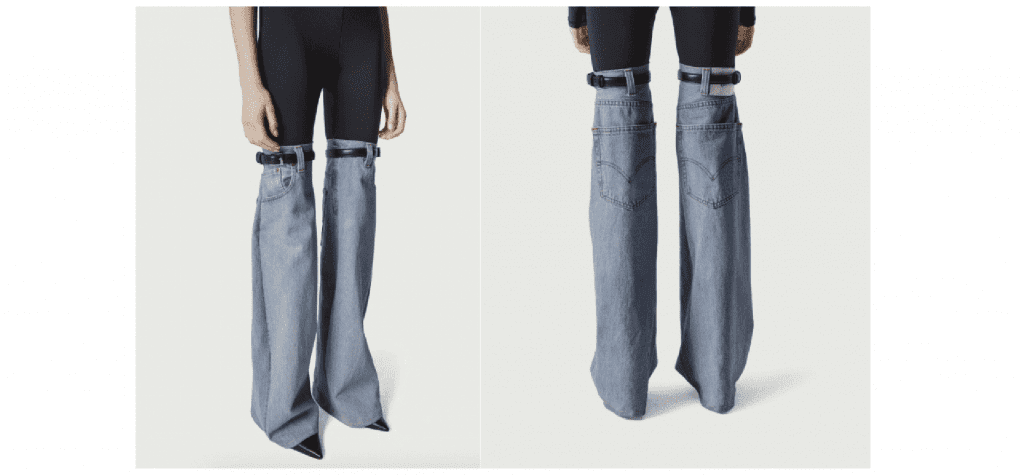The White House released an Executive Order on “Safe, Secure, and Trustworthy Artificial Intelligence” on Monday in what the Biden administration calls a “landmark” move to “ensure that America leads the way in seizing the promise and managing the risks of AI.” According to the White House’s release, the EO “establishes new standards for AI safety and security, protects Americans’ privacy, advances equity and civil rights, stands up for consumers and workers, promotes innovation and competition, advances American leadership around the world, and more.”
The EO, which is expected to be implemented over the next 3 months to one year, covers 8 areas – safety & security standards for AI; privacy protections; equity & civil rights; consumer rights; jobs; innovation & competition; international leadership; and AI governance – with the aim of “protect[ing] Americans from the potential risks of AI systems.”
>> Specifically, the EO directs federal agencies to take action, including by developing “standards, tools, and tests to help ensure that AI systems are safe, secure, and trustworthy,” the prioritization of “federal support for accelerating the development and use of privacy-preserving techniques,” creating “clear guidance to landlords, fed. benefits programs, and federal contractors to keep AI algorithms from being used to exacerbate discrimination” & producing “a report on AI’s potential labor-market impacts, and study and identify options for strengthening federal support for workers facing labor disruptions, including from AI,” among other things.
Labeling and Right-of-Publicity: From our perspective, a particularly notable point comes from a labeling perspective …

While there is a noticeable focus on government-related content here, including presumably, political deepfakes and other misinformation, it is not difficult to envision the broader relevance on the right-of-publicity front, especially as the likenesses of celebrities like Tom Hanks, Drake, Scarlett Johansson, Kim Kardashian, etc. have been the subject of unauthorized use.
What About Copyright? The most interesting thing about the EO, however, is what is not given too much attention: IP. The EO does address it: Section 5.2(c)(iii), for example, directs the U.S. Patent and Trademark Office Director to issue recommendations to the President in consultation with the Director of the Copyright Office on potential executive actions to be taken relating to copyright and AI “within 270 days of the date of the EO or 180 days after the U.S. Copyright Office of the Library of Congress publishes its forthcoming AI study.”
The EO also calls on the USPTO Director to issue guidance to examiners on inventorship and AI within 120 days, and within 270 days, additional guidance on other issues, including patent eligibility and AI. Certainly on the government’s radar, IP has been a recurring topic of discussion at AI-specific hearings before the Senate this year, issues of AI and authorship and inventorship have been before the Copyright Office and USPTO, receptively & both offices have called for comments on various issues related to AI.
The Bottom Line: The lack of emphasis on copyright, in particular, in the EO seems to keep the onus on courts to grapple with/provide answers when it comes to IP issues, including things like fair use, as they are doing in a number of important cases worth keeping an eye on. We are tracking many of those cases here.
– Yuga Labs v. Ryder Ripps: The 9th Circuit affirmed the C.D. Cal. judge’s decision to deny Ryder Ripps’ anti-SLAPP motion. In a nutshell: Yuga Labs’ claims did not arise from acts Ripps took in furtherance of his right of free speech.
– Tremblay, Silverman v. OpenAI: Counsel OpenAI alerted an N.D. Cal. judge to the court’s recent dismissal of claims in a separate AI copyright case (Andersen v. Stability AI), stating that “in pertinent part, the court found that (a) “it’s simply not plausible” that every output of a GenAI model constitutes a derivative work absent “‘substantial similarity’ type allegations, and (b) ‘[i]n order to state a claim [under s. 1202 of the DMCA], each P must identify the exact type of CMI included’ in their works & ‘allege plausible facts’ regarding how that CMI was allegedly removed or altered.”
– Vidal v. Elster: The “Trump too small” TM case went before SCOTUS on Wed., and the court seems likely to reject Elster’s claim that the USPTO’s refusal to register his TM runs afoul of the First Amendment. SCOTUSblog has a writeup here.
– Levi Strauss v. Coperni: Levi’s has voluntarily dismissed the TM suit that it filed against Coperni without prejudice. More about that case – in which Levi’s accused Coperni of replicating its tan TMs & also selling reworked Levi’s jeans (below). – right here.

– Shein has agreed to buy fast fashion brand Missguided from British retail group Frasers for an undisclosed sum.
– Connectly, the “leader in conversational commerce,” has raised $7.85M in a Series A round.
– New York-based generative AI platform 1337 has raised $4M in a Pre-seed round.
– Direqt – a customizable AI chatbot solution for publishers – has raised $4.5M in funding.
– Ambercycle – which provides molecular regeneration technology for the fashion industry – has raised $5M in funding.
– Fine jewelry & luxury watch marketplaces Worthy & CIRCA Jewels will merge to create a company that they say is worth more than $100M.
– Treehouse, a Web3 company transforming digital assets data into actionable insights for investors & institutions, has acquired Origins Analytics.
– LegalMation, Inc., has raised $15M in a Series A round.